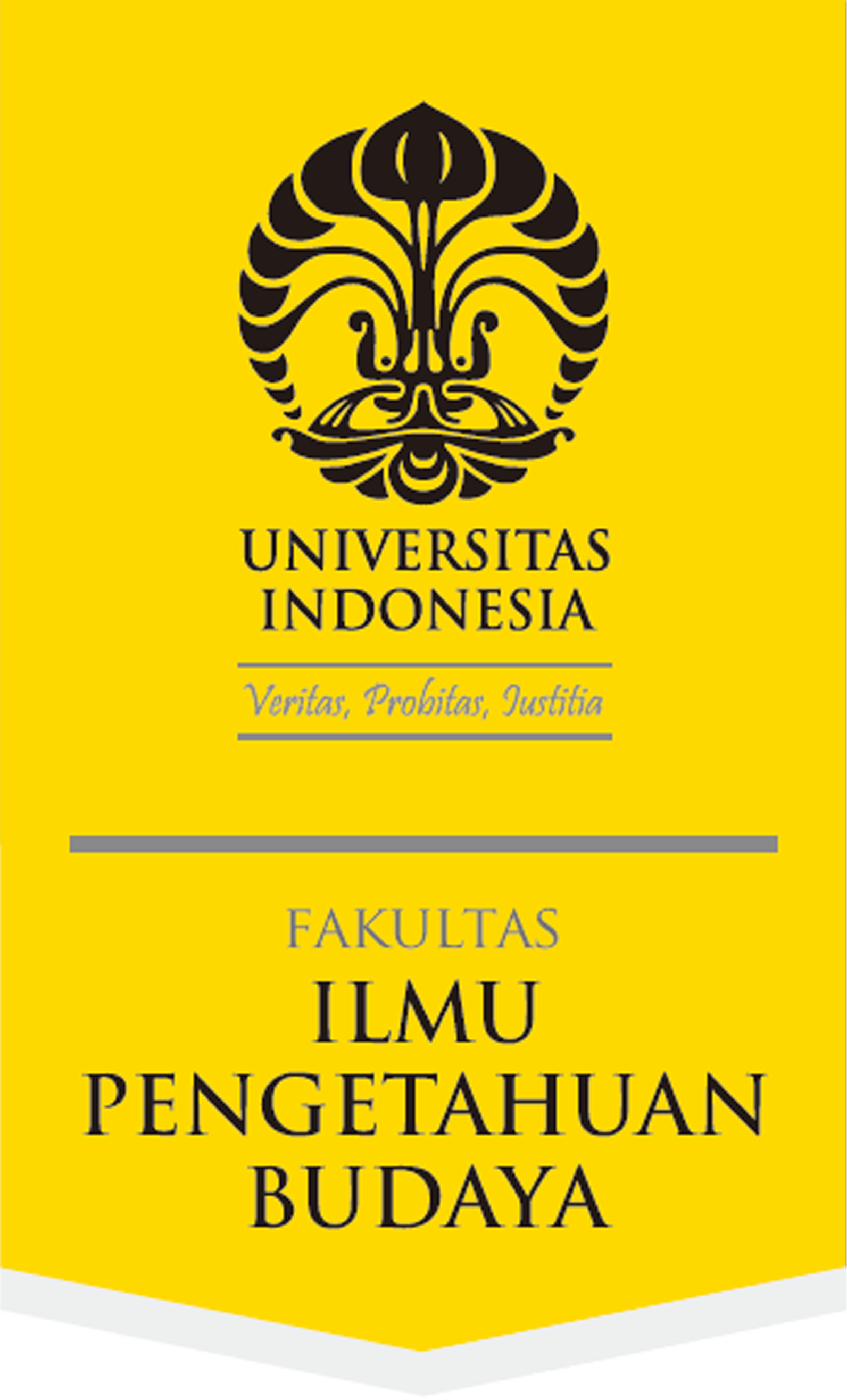Abstract
The dissertation discusses various documents on Java collected in Siku Quanshu (Complete Library of Four Treasures). The documents used as the sources of this study are the ones with complete pictures and strong narration on Javanese recorded from Han Dynasty (206 bc-220 ad) to Ming Dynasty (1364-1644) in order to reveal what kind of historical knowledge or historical information is delivered by Chinese historians in general and what kind of point of view is used by historians to deliver the notes about Java. Through analytical reading, the readers will find that historians paid attention to three issues: the relationship between China and Java, the condition of Javanese kingdoms and their culture, and the Java land natural resources. People of China regard their country as an ancient country with long history of remarkable civilization which located in the centre of the world. The awareness of how important is their country, indirectly influences the historians' points of views. The texts analyzed indirectly prove that some areas on Java are culturally left behind and the countries beyond China, including Java, are the barbaric ones obliging their people to submit or pay tributes to the Kingdoms of China.
References
Brookaw, Cynthia J. and Kaiwing Chow (eds). 2005. Printing and book culture in late Imperial China. Berkeley, L.A., London: University of California Press.
Fu Sinian (傅斯年). 2008. Shixue Fangfa Daolun (史學方法導論). Nanjing: Jiangsu Wenyi Chubanshe.
Groeneveldt, W.P. 1960. Historical notes on Indonesia and Malaya compiled from Chinese sources. Jakarta: C.V. Bhratara.
Ji Shaofu (吉少甫) (ed.). 1991. Zhongguo Chuban Jianshi (中國出版簡史). Shanghai: Xuelin Chubanshe.
Liang Liji. 2012. Dari relasi upeti ke mitra strategis. Jakarta: Penerbit Buku Kompas.
Lucey, William Leo. 1958. History; Methods and interpretation. Chicago: Loyola University Press.
Qiu Xuanyu (邱炫煜). 1995. Ming Diguo yu Nanhai Zhufanguo Guanxide Yanbian (明帝國與南海諸蕃關係的演變). Taibei: Lantai Chubanshe.
Rubinoff, Lionel. 1991. “Historicity and objectivity”, in: Dussen, W.J. van der and Rubinoff (eds), Objectivity, method, and point of view; Essays in the philosophy of history, pp. 133-151. Leiden: E.J. Brill.
Twittchett, Dennis. 1997. The historian, his reader, and the passage of time. Taipei: Institute of History and Philology, Academia Sinica.
Vlekke, Bernard H.M. 2008. Nusantara; Sejarah Indonesia. Jakarta: Kepustakaan Populer Gramedia.
Zhang Jiawei (張家偉). 1999. Yazhou Zhoukan (亞洲週刊/Asia Weekly Journal), 15–21 November.
Documents related to Java in Siku Quanshu used in dissertation
Dongxiyang Kao 東西洋考 (Researches on the Eastern and Western Ocean), “Banten”, by Zhang Xie (張燮).
Dongxiyang Kao 東西洋考 (Researches on the Eastern and Western Ocean), “Secikang”, by Zhang Xie (張燮).
Fa Xian (法顯), Foguo Ji 佛國記 (Records of Buddhist Countries).
Hou Han Shu 後漢書 (History of the Eastern Han Dynasty), Chapter 6 and Chapter 116.
Jiu Tang Shu 舊唐書 (Old History of Tang Dynasty), Chapter 197.
Ming Shi 明史 (History of the Ming Dynasty), Chapter 304, “Biography of Zheng He”.
Ming Shi 明史 (History of the Ming Dynasty), Chapter 324, “Java”.
Ming Shi 明史 (History of the Ming Dynasty), Chapter 324, “Sucitan”.
Song Shi 宋史 (History of the Song Dynasty), Chapter 489.
Song Shu 宋書 (History of the Early Song Dynasty), Chapter 97.
Wang Dayuan (汪大淵), Daoyi Zhilüe 島夷志略 (Brief Records of Savage Islanders), “Java”.
Wang Dayuan (汪大淵), Daoyi Zhilüe 島夷志略 (Brief Records of Savage Islanders), “Gelam Island”.
Xin Tang Shu 新唐書 (New History of the Tang Dynasty), Chapter 222, part-2.
Yingya Shenglan 瀛涯勝覽 (The Survey of the Ocean’s Shores), “Java”, by Ma Huan (馬歡).
Yiyuzhi 異域志 (Records of Foreign Countries), “Java”, by Zhou Zhizhong ( 周致中).
Yuan Shi 元史 (History of the Yuan Dynasty), Chapter 131, “Biography of Yiheimishi”.`
Yuan Shi 元史 (History of the Yuan Dynasty), Chapter 162, “Biography of Gao Xing”.
Yuan Shi 元史 (History of the Yuan Dynasty), Chapter 162, “Biography of Shi Bi”.
Yuan Shi 元史 (History of the Yuan Dynasty), Chapter 210, “Java”.
Zhao Rukuo 趙汝适, Zhufanzhi 諸藩志 (Records of Foreign Barbaric Countries), “Java”.
Zhao Rukuo 趙汝适, Zhufanzhi 諸藩志 (Records of Foreign Barbaric Countries), “Sucitan”.
Recommended Citation
Wuryandari, Nurni Wahyu
(2014)
"Study on the documents of Java in Siku Quanshu; Historical knowledge and historians' point of view,"
Wacana, Journal of the Humanities of Indonesia: Vol. 15:
No.
1, Article 11.
DOI: 10.17510/wjhi.v15i1.111
Available at:
https://scholarhub.ui.ac.id/wacana/vol15/iss1/11









